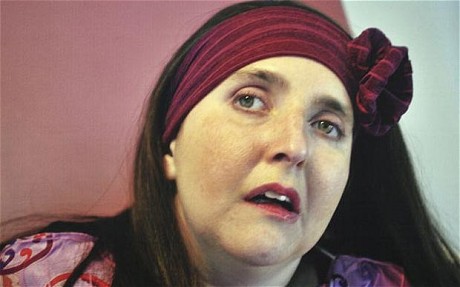
If something happened to you, would you want to live out the rest of your life in a vegetative state, alive but unable to eat, think, speak or walk? I know I wouldn’t. I have made it perfectly clear to all my family and friends that if something were to happen that left me in a persistent vegetative state I would not want to continue living. I have also requested a DNR (do not resuscitate), but what about those who have never given that issue much thought, and have never actually told others what they would want to happen in such a case? And what about the wishes of family members? Do they have the right to prolong another person’s life, possibly against the individual’s wishes?
That moral dilemma (to keep someone in a coma or in a persistent vegetative state) alive has pitted family member against family member, and eventually wound up in court in the case of Terri Schiavo. Schiavo’s case made national headlines and wound up in state and federal courts. The young woman was left in a vegetative state in 1990 after a massive heart attack. Unable to communicate or survive without medical assistance, Terri’s husband asked the courts to remove her feeding tubes. Her parents refused and it turned into a 7 year battle, which finally ended in 2005, when her tubes were finally removed and she died several weeks later. Apparently, Terri had made her wishes very clear that she did not want to prolong her life in such a way, but her parents countered that since she was a Catholic, she would not agree to euthanasia. But is removing life support actually euthanasia? I think not, but many obviously do.
Now there’s an ongoing case with a Los Angeles woman that has been brought to the national spotlight. Although not quite the same, it also has people questioning certain ethical and moral ramifications of people in vegetative states. In 2006, Abbie Dorn gave birth to triplets, but as a result of a tragic medical blunder at the hospital where she delivered 3 babies (2 boys and a girl), she was left paralyzed, and severely brain damaged. She is alive, able to breathe on her own, but she is unable to do anything else, and she is fed intravenously. A year after the terrible accident, her husband Dan filed for divorce, and has been raising the children on his own. What has Abbie’s parents up in arms, is the fact that he has only brought the children to see their mother 3 times since the accident. In fact, he only told his kids about their mother last year. His reasoning: it would traumatize the children to visit a mother unable to communicate with them. He also worries that regular visits with their mother might give the grandparents the chance to make the children think their mother might recover.
However, the grandparents believe it’s their daughter’s “constitutional right to motherhood” and want regular visiting rights. According to Abbie’s lawyer, Lisa Helfend-Meyer, “All we want is for Abbie to be able to know her children and have an ongoing and full relationship with them to the best of her ability. They can get to know and love their mother, they can spend time with her, they can call her Mommy.” Even though Abbie would be unable to take care of her children, and Dan is convinced she is “100 per cent not there”, oblivious and unaware of the existence of her kids, people believe she still has the right to visit with them. The fact that Abbie smiles and laughs and tears up, makes the issue even more complicated, since this has some believing that she is aware, whereas others believe those are simply reflex actions from a body that is beset by excruciating muscle spasms.
What makes it even more difficult is the fact that Abbie now lives with her parents in South Carolina, while Dan lives in California; it makes visiting regularly rather difficult. He has said he does not mind visiting once a year, but thinks the law suit has more to do with the grandparents wanting visitation rights than the rights of a mother to see her children, since, according to his lawyer, it only applies to “fit parents only,” which Abbie is quite obviously not. The few times the children have visited have been positive, so the Judge, Frederick Shaller, determined there would be no harm, so has given temporary visitation rights until the case goes to trial. The triplets can visit with their mum 5 days a year, and she is allowed to visit with them over the internet (Skype) once a month. However, the grandparents want more time, and it is predicted that the case will last for years with appeals.
Although, his lawyer claims “He loved and still loves his wife very much and he’s doing what he believes she would want him to do. He’s not opposed to his children seeing their mother, but he doesn’t want to co-parent his children with his mother-in-law. There’s a big difference.” One has to wonder if Abbie would want to live in a body without consciousness, or if she is indeed conscious, trapped in a body without being able to express herself. Obviously, letting go of a child would be difficult for a parent, but are they being selfish, or loving? It’s hard to say.
Source: TelegraphUK



